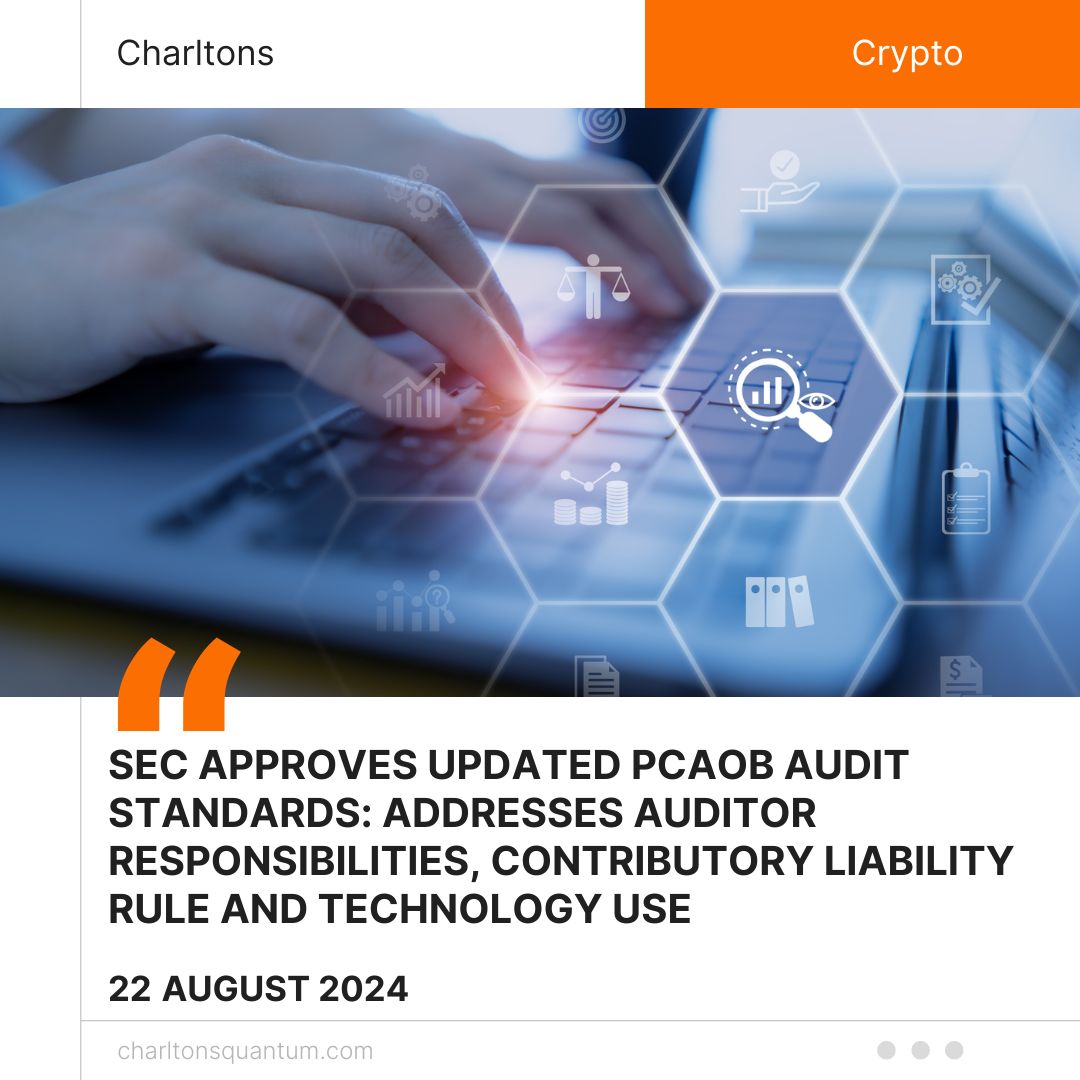
On 20 August, 2024, the Securities and Exchange Commission (SEC) announced the approval of updates to the Public Company Accounting Oversight Board (PCAOB) audit standards, which will take effect for audits of financial statements beginning from 15 December, 2024. These changes include updated standards on general auditor responsibilities, the incorporation of technology-assisted analysis in audit procedures, and a significant amendment to the PCAOB’s contributory liability rule for associated persons of audit firms.
The SEC has endorsed the PCAOB’s new AS 1000, “General Responsibilities of the Auditor in Conducting an Audit,” which modernizes and consolidates the principles governing an auditor’s duties. This standard emphasizes the auditor’s role in safeguarding investor interests by ensuring the issuance of accurate, independent reports. It also reinforces the need for auditors to exercise due professional care, skepticism, and judgment while adhering to stringent ethics and independence rules.
Additionally, the SEC approved amendments to AS 1105, “Audit Evidence,” and AS 2301, “The Auditor’s Response to the Risks of Material Misstatement,” to address the use of technology-assisted data analysis tools in audits. These updates clarify the auditor’s responsibilities when deploying advanced analytical tools, ensuring that technology use aligns with the overarching goals of transparency and accuracy in financial reporting.
The amendment to PCAOB Rule 3502, which will become effective in 60 days, shifts the standard for contributory liability from recklessness to negligence. This adjustment aligns the rule with other negligence-based professional conduct standards, ensuring that individuals within audit firms are held accountable if their actions directly and substantially contribute to the firm’s violations.
The adoption of the updated PCAOB audit standards and the amendment to the contributory liability rule carry significant implications for the cryptocurrency industry, which has long been under scrutiny for its opaque financial practices and the complexity of auditing digital assets. As cryptocurrencies and blockchain technology become more integrated into mainstream finance, the need for rigorous and transparent auditing processes becomes ever more critical. The SEC’s approval of these changes signals a clear intent to bring the auditing of crypto entities up to par with traditional financial institutions, ensuring that the same level of scrutiny and accountability applies across the board.
One of the most notable aspects of the updated standards is the explicit inclusion of technology-assisted analysis in audit procedures. For the cryptocurrency sector, which is inherently digital and data-driven, this development is particularly important. Blockchain transactions, while public, are often complex and involve multiple layers of cryptographic verification. The ability of auditors to effectively use advanced data analytics and technology-assisted tools will be crucial in navigating these complexities, allowing for more accurate and efficient audits of crypto assets and transactions.
Furthermore, as cryptocurrency firms often operate on a global scale with decentralized structures, the shift towards a negligence-based standard for contributory liability under Rule 3502, raises the stakes for individuals within audit firms who are responsible for the oversight of crypto-related audits. Auditors and associated persons will need to exercise heightened diligence in their review and reporting processes, as any lapses that directly and substantially contribute to regulatory violations could now result in legal and professional consequences under the revised standards.
The implications of these updates extend beyond just compliance; they are likely to influence how cryptocurrency firms approach their internal controls and financial reporting practices. With the SEC and PCAOB emphasizing the importance of ethical conduct, professional skepticism, and the use of cutting-edge technology, crypto firms will need to ensure that their financial statements are prepared and audited with the highest standards of accuracy and transparency.
Moreover, the enhanced auditing standards could also play a role in legitimizing the cryptocurrency market in the eyes of institutional investors. As these investors increasingly seek exposure to digital assets, they demand the same level of assurance and reliability that they receive from traditional financial products. By enforcing stricter audit standards, the SEC and PCAOB are helping to create a more trustworthy environment for investing in cryptocurrencies, which could lead to increased capital inflows and further integration of digital assets into the global financial system.
SEC Commissioner Hester M. Peirce expressed significant concerns regarding the PCAOB’s recent proposals, which include shifting the contributory liability standard from recklessness to negligence and updating audit standards for technology-assisted data analysis. Peirce cautioned that the change to a negligence-based standard could unintentionally lower audit quality and deter talent from entering the auditing profession. She emphasized that this shift appears driven more by a desire for aggressive enforcement than by a clear necessity and could exacerbate existing challenges in the audit industry, such as market concentration and the departure of seasoned auditors.
While supporting the modernization of audit standards to incorporate technology, Peirce voiced reservations about the potential costs and burdens these amendments could impose on auditors and their clients. She stressed the need for clear implementation guidance and raised questions about the PCAOB’s authority to make such changes. Peirce’s concerns highlight the importance of balancing rigorous enforcement with the need to maintain a collaborative and efficient audit process, as the SEC moves forward with these regulatory updates.
SEC Chairman Gary Gensler expressed strong support for the final amendments aimed at modernizing audit standards through the integration of technology-assisted data analysis. He highlighted that these updates are crucial in keeping pace with the rapid advancements in technology, particularly in the finance sector. Gensler emphasized that the amendments will provide auditors with a robust, risk-based framework to ensure the reliability of large data sets, enhance the quality and quantity of audit evidence, and update essential audit procedures. He praised the PCAOB for its efforts in revising these standards, which are vital for maintaining the integrity and effectiveness of the audit process in the 21st century.
(Source: https://www.sec.gov/newsroom/press-releases/2024-100, https://www.sec.gov/newsroom/speeches-statements/peirce-remarks-pcaob-082024, https://www.sec.gov/newsroom/speeches-statements/gensler-remarks-pcaob-technology-082024)





